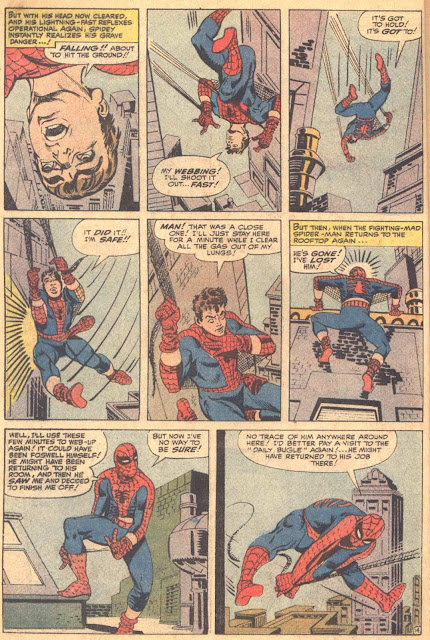I just read this article by Giles Coren for the Spectator. It's caused a lot of people to freak out who need to calm down. I will concede that I might be giving him too much credit, and I don't think it's the greatest article, but it's an intriguing, if poorly targeted (and pompous) attempt at a jab at the comics establishment on both ends of the spectrum. This was my response:
Slow down, take a deep breath and look at this article with less of a chip on your shoulder.
I'm pretty certain this is satire, a jab at the pompousness of literary prizes in general, a jab at the way comics have been accepted over the years by critics, and how literary critics generally tend not to be very savvy about the medium. One jab at this is how he presents Maus, how Maus was singularly heralded as literature by critics in the 80s when comparable if not better works were being produced at the same time.
He points out the handful of comics that are essentially mainstream genre comics mentioned by the mainstream press as "worthy," intended to demonstrate their larger ignorance of the medium as touted by the insiders who tend to be critical of the whole "graphic novel" phenomenon, and the US centric nature of this group, who tend to focus primarily on American comics.
Then he takes a jab at the pretensions of this small press critical establishment in the US, the rejection of the term "graphic novel" by many of them--myself included--as a desperate and unnecessary grab at legitimacy, a way to present the medium to the mainstream as not comics, which, it basically is, something all of us who are into comics have had to embrace whether reluctantly or otherwise since it's here to stay.
He further takes a jab at comics as it is often mistaken for a "genre" and by the context, clearly understands the difference, even though it might sound like he doesn't.
The absurd pronunciation of the word "comics" as "karmcbwerks" is a bit mean spirited, a jab at the New York comics critical establishment that lionizes Spiegelman, something it sounds like the author resents. It's an exaggerated satirical take on the prejudice, very much on the borderline of the real thing, but I don't believe its intended as such.
His references to the history of comics as touted as a legitimate medium from their inception is also a crack at this group, and the whole I dressed as Superman and read nothing but comics as a kid thing is a satire on the sometimes over vehement expressions of enthusiasm for the medium and insiderness of this same group.
Basically it's a series of very inside jokes that someone only with a very very intimate knowledge of comics would get, but I can see how someone who was just as familiar with comics might immediately misunderstand and react negatively. Essentially I think the guy has missed his audience by a broad margin here. It's something you might see in a English comics fanzine and it's very odd to see it in the Spectator. But believe it or not, he's not actually a prick, he just sounds like one, though this too is an arguable point.
The whole thing seems to be written out of anger and with a complete lack of regard for how it will inevitably be received, which to me demonstrates a certain, precious embrace of the author's own feeling of outsiderness, the infantile romance of being misunderstood, or maybe just an impressive bout of trolling.
So unless you believe these prizes are sacred, and that the whole screwed up history of the way mainstream academics have attempted to contextualize the whole mess out of half ignorance and the one-sided battle between mainstream critics and the small press comics critical establishment in the US (a conflict that academia also largely remains ignorant of), then I wouldn't waste your time defending comics, but criticizing these opinions as presented, in an elaborate tongue and cheek way by the author.














